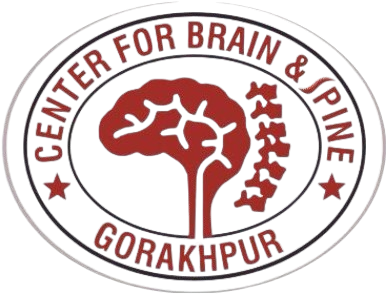Brain infections, also known as central nervous system (CNS) infections, can be serious and life-threatening conditions that involve the brain and surrounding tissues. These infections can be caused by various pathogens, including bacteria, viruses, fungi, and parasites.
Types of Brain Infections
Meningitis:
- Description: Inflammation of the protective membranes (meninges) covering the brain and spinal cord.
- Causes:
- Bacterial Meningitis: Caused by bacteria such as Neisseria meningitidis, Streptococcus pneumoniae, and Haemophilus influenzae.
- Viral Meningitis: Often caused by enteroviruses, herpes simplex virus, or other viruses.
- Fungal Meningitis: Caused by fungi like Cryptococcus species, especially in immunocompromised individuals.
- Symptoms: Severe headache, stiff neck, fever, confusion, sensitivity to light, nausea, vomiting.
Encephalitis:
- Description: Inflammation of the brain tissue itself.
- Causes: Often viral, caused by herpes simplex virus, West Nile virus, or other viruses. It can also be due to autoimmune responses.
- Symptoms: Fever, headache, confusion, seizures, changes in behavior, hallucinations, and sometimes paralysis or other neurological deficits.
Brain Abscess:
- Description: A localized collection of pus in the brain caused by bacterial or fungal infection.
- Causes: Can arise from infections elsewhere in the body (e.g., sinusitis, dental infections) spreading to the brain, or from direct trauma or surgery.
- Symptoms: Headache, fever, neurological deficits (e.g., weakness, speech difficulties), seizures, and changes in mental status.
Subdural Empyema:
- Description: A collection of pus between the dura mater and the arachnoid mater, usually due to bacterial infection.
- Causes: Often follows sinus infections, ear infections, or head trauma.
- Symptoms: Headache, fever, nausea, vomiting, neurological deficits, and seizures.
Prion Diseases:
- Description: Rare, degenerative brain disorders caused by abnormal proteins called prions.
- Examples: Creutzfeldt-Jakob disease (CJD).
- Symptoms: Rapidly progressive dementia, movement disorders, and neurological decline.
Diagnosis
Diagnosis of brain infections typically involves:
- Clinical Examination: Assessment of symptoms and neurological status.
- Imaging:
- CT Scan or MRI: To detect inflammation, abscesses, or structural changes in the brain.
- Lumbar Puncture (Spinal Tap):
- Cerebrospinal Fluid (CSF) Analysis: To detect the presence of pathogens, elevated white blood cells, and other markers of infection.
- Blood Tests: To identify the cause of the infection and check for systemic involvement.
- Microbiological Tests: Cultures and PCR (polymerase chain reaction) tests to identify the specific pathogen.
Treatment
Treatment depends on the type and cause of the brain infection:
Bacterial Infections:
- Antibiotics: Broad-spectrum antibiotics are often started immediately, followed by targeted therapy based on culture results.
- Surgery: In cases of brain abscess, surgical drainage may be required.
Viral Infections:
- Antiviral Medications: For specific viruses like herpes simplex virus (e.g., acyclovir).
- Supportive Care: Managing symptoms and complications, such as seizures.
Fungal Infections:
- Antifungal Medications: Such as amphotericin B or fluconazole, particularly in immunocompromised patients.
Prion Diseases:
- No Cure: Treatment is supportive, focusing on managing symptoms and providing palliative care.
Steroids:
- Sometimes used to reduce inflammation and swelling in the brain, especially in cases of bacterial meningitis or severe encephalitis.
Prognosis
The prognosis for brain infections varies widely depending on the cause, severity, and timeliness of treatment:
- Bacterial Meningitis: Can be fatal if not treated promptly; however, early intervention with antibiotics can lead to recovery, though some may suffer long-term effects like hearing loss or cognitive deficits.
- Viral Encephalitis: Outcomes depend on the virus and severity; some patients recover fully, while others may experience long-term neurological problems.
- Brain Abscess: Prognosis is better with early treatment, but there can be lasting neurological deficits.
- Prion Diseases: Typically have a poor prognosis, with rapid progression and high mortality.
Prevention
- Vaccination: Against meningitis-causing bacteria and viruses (e.g., meningococcal, pneumococcal, Haemophilus influenzae type b).
- Prompt Treatment: Of infections in other parts of the body to prevent them from spreading to the brain.
- Safe Practices: To prevent head injuries and reduce the risk of infection.
Brain infections are medical emergencies that require prompt diagnosis and treatment to reduce the risk of severe complications and improve outcomes.

